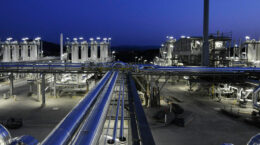BASF receives funding for battery recycling project
The European Commission has just awarded BASF a €100 million grant to support its upcoming large-scale refinery project for electric vehicle battery recycling. The planned investment project, to be located in Tarragona, Spain and subject to final investment decision, will recover valuable materials from end-of-life batteries and manufacturing scrap that can be fed back into the circular battery material loop and re-used for battery production. The Government of Spain, through the Ministry of Industry and Energy, also confirmed that, under the Perte Vec 2 program, the project has been awarded with another grant for the sum of €15.8 million.
BASF offers battery recycling solutions worldwide and is actively contributing to the establishment of a competitive battery recycling footprint in Europe, while reducing the industry’s dependence on imported key raw materials. On top, battery recycling further improves the sustainability of electric vehicles as recycled metals have a significantly lower carbon footprint compared to metal production from mining.
In Schwarzheide, Germany, BASF is preparing to start up a prototype metal refinery plant next to the battery recycling plant for the production for black mass, which is planned to start operations mid-2024. The prototype plant will play a vital role in developing operational procedures and optimizing innovative battery recycling technology to be used in the planned large-scale refinery. BASF aims to achieve superior recovery rates of valuable metals as it scales up this technology.

Co-funded by the European Union. Views and opinions expressed are however those of the author(s) only and do not necessarily reflect those of the European Union or the European Education and Culture Executive Agency (EACEA). Neither the European Union nor EACEA can be held responsible for them.
png (113.409 KB)


